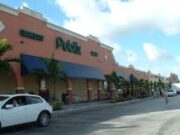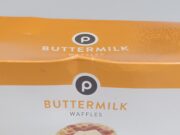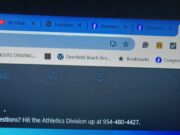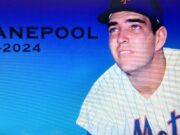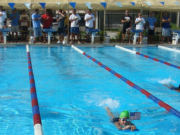
Deerfield-News.com-Deerfield Beach, Fl-Here are some of Lighthouse Point restaurants’ most recent inspections from the DBPR.
First up is Amelia’s Brooklyn Pizza with eleven violations of which five are a high priority.
Fish Shack a Lighthouse Point favorite comes thru with a perfect inspection at their new location nice job!
Licensee
Name: AMELIA’S BROOKLYN PIZZA License Number: SEA1601085
Rank: Seating License Expiration Date: 12/01/2019
Primary Status: Current Secondary Status: Active
Location Address: 3650-E N FEDERAL HWY
LIGHTHOUSE POINT, FL 33064
Inspection Information
Inspection Type Inspection Date Result High Priority Violations Intermediate Violations Basic Violations
Routine – Food 09/16/2019 Follow-up Inspection Required
Violations require further review, but are not an immediate threat to the public.
More information about inspections.
5 5 1
Violations:
A summary of the violations found during the inspection are listed below. The department cites violations of Florida’s sanitation and safety laws, which are based on the standards of U.S. Food and Drug Administration’s Food Code. High Priority violations are those which could contribute directly to a foodborne illness or injury and include items such as cooking, reheating, cooling and hand-washing. Intermediate violations are those which, if not addressed, could lead to risk factors that contribute to foodborne illness or injury. These violations include personnel training, documentation or record keeping and labeling. Basic violations are those which are considered best practices to implement. While most establishments correct all violations in a timely manner (often during the inspection), the division’s procedures are designed to compel compliance with all violations through follow-up visits, administration action or closure when necessary.
Violation Observation
23-05-4 Basic – Soil residue build-up on nonfood-contact surface. Doors of reach-in coolers, side of fryer, and floors.
03A-02-4 High Priority – Potentially hazardous (time/temperature control for safety) food cold held at greater than 41 degrees Fahrenheit. Atosa 2-door fliptop at cookline – half and half (51°F). Cream improperly stored in top of fliptop cooler more than 4 hours. See stop sale.
03D-05-4 High Priority – Potentially hazardous (time/temperature control for safety) food cooked/heated yesterday/on a previous day not cooled from 135 degrees Fahrenheit to 41 degrees Fahrenheit within a total of 6 hours. Food has been cooling overnight. See stop sale. In walk-in cooler – marinara sauce (49°F – Cooling overnight). Food cooling in deep plastic container with lid on.
03F-02-4 High Priority – Potentially hazardous (time/temperature control for safety) food identified in the written procedure as a food held using time as a public health control has no time marking. Pizza slices at front counter. Manager added time mark. **Corrected On-Site**
08A-18-5 High Priority – Raw animal foods not properly separated from one another based upon minimum required cooking temperature in reach-in freezer – all products not commercially packaged. RW chicken stored over eggplant in reach-in cooler at pizza station. Manager moved food and stored properly. **Corrected On-Site**
01B-02-4 High Priority – Stop Sale issued on potentially hazardous (time/temperature control for safety) food due to temperature abuse. Potentially hazardous (time/temperature control for safety) food cooked/heated yesterday/on a previous day not cooled from 135 degrees Fahrenheit to 41 degrees Fahrenheit within a total of 6 hours. Food has been cooling overnight. In walk-in cooler – marinara sauce (49°F – Cooling overnight). Food cooling in deep plastic container with lid on. Potentially hazardous (time/temperature control for safety) food cold held at greater than 41 degrees Fahrenheit. Atosa 2-door fliptop at cookline – half and half (51°F). Cream improperly stored in top of fliptop cooler more than 4 hours.
22-24-4 Intermediate – Accumulation of black/green mold-like substance on/around soda dispensing nozzles. Self serve soda machine in dining area.
22-22-4 Intermediate – Encrusted material on can opener blade.
53B-01-5 Intermediate – No proof of required state approved employee training provided for any employees. To order approved program food safety material, call DBPR contracted provider: Florida Restaurant and Lodging Association (SafeStaff) 866-372-7233.
16-31-4 Intermediate – No proper chemical test kit provided for measuring the concentration of the sanitizer solution used for wiping cloths. No chlorine or quaternary ammonia test strips.
03F-10-4 Intermediate – No written procedures available for use of time as a public health control to hold potentially hazardous (time/temperature control for safety) food. Printed application – manager completed during inspection. **Corrected On-Site**
Licensee
Name: FISH SHACK License Number: SEA1622250
Rank: Seating License Expiration Date: 12/01/2019
Primary Status: Current Secondary Status: Active
Location Address: 2460 N FEDERAL HWY
LIGHTHOUSE POINT, FL 33064
Inspection Information
Inspection Type Inspection Date Result High Priority Violations Intermediate Violations Basic Violations
Food-Licensing Inspection 09/19/2019 Met Inspection Standards
During This Visit
More information about inspections.
0 0 0
Violations:
A summary of the violations found during the inspection are listed below. The department cites violations of Florida’s sanitation and safety laws, which are based on the standards of U.S. Food and Drug Administration’s Food Code. High Priority violations are those which could contribute directly to a foodborne illness or injury and include items such as cooking, reheating, cooling and hand-washing. Intermediate violations are those which, if not addressed, could lead to risk factors that contribute to foodborne illness or injury. These violations include personnel training, documentation or record keeping and labeling. Basic violations are those which are considered best practices to implement. While most establishments correct all violations in a timely manner (often during the inspection), the division’s procedures are designed to compel compliance with all violations through follow-up visits, administration action or closure when necessary.
Violation Observation
N/A No Violations Were Observed


